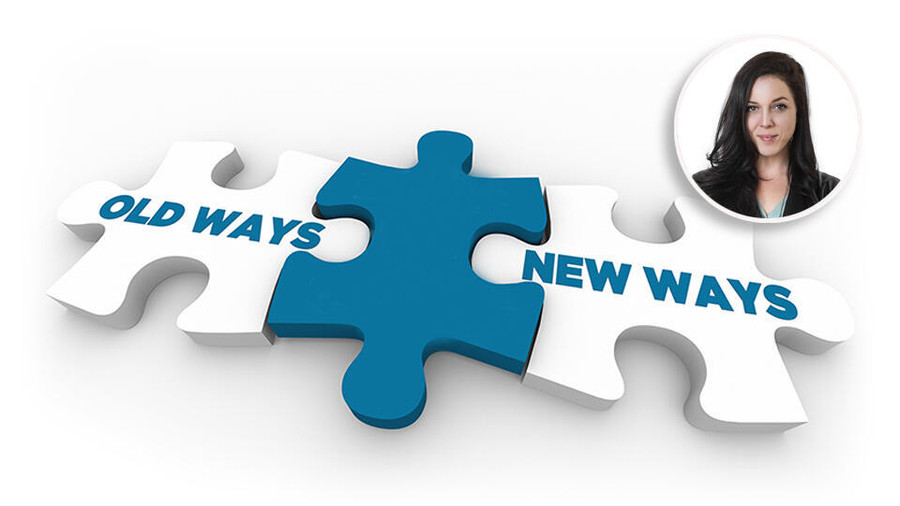As someone who has been in the industry since 2003, I’ve seen countless trends, products and marketing strategies come and go. Yet one thing has remained consistent: a significant gap in how sex toy retailers serve marginalized communities.
Just like in more mainstream sectors, marketing in the pleasure industry has historically tended to focus on a relatively narrow demographic, often leaving out LGBTQ+ folks, people of color, disabled individuals and others whose bodies or experiences don’t fit the standard narrative. For an industry built around pleasure and empowerment, this makes neither ethical nor commercial sense.
When people feel seen and respected, they’re more likely to trust you, buy from you and recommend you to others.
While some companies make genuine efforts to be more inclusive, others simply pay lip service to diversity without taking meaningful action — or they jump ship as soon as they can no longer profit from rainbow capitalism. It should be no surprise that Target stock plummeted after the chain quickly abandoned its DEI initiatives to appease the new Trump administration. This is exactly what should happen when companies abandon the very people who keep them in business.
Real inclusivity isn’t about checking off boxes. It’s about actively supporting underserved communities in ways that feel authentic, accessible and empowering. Let’s look at some specific strategies for making that happen.
The Foundation: Listening and Understanding
Sexual wellness looks different for everyone. Trans and nonbinary people may seek gender-affirming toys and products that align with their anatomy and identity. People with disabilities may need accessible products that are easy to grip, operate and clean. Body-safe materials are important for people with sensitivities. Your product range should reflect the diversity of your customer base.
It’s not enough to carry a few niche products and call it a day. Retailers need to actively listen to these communities, understand their needs and use language that is gender-neutral, body-neutral or body-positive. Paying attention to the words you use, and avoiding assumptions about who uses your products and how they use them, helps everyone feel welcomed. When you make pleasure accessible to all, everyone benefits.
Representation: Start With the Store
Customers want to see themselves reflected in your brand, and representation is a powerful way to build that connection. If you want to be a beacon of hope and help for communities in your area, you might start by hiring folks who reflect those communities, and who may not move through this world in a body like yours.
I am grateful to be part of a diverse local community in Las Vegas, but I’m still a white woman. That means I instinctively see through a specific lens. Our individual perspectives are innately limited, but having varied voices on staff can help you recognize an expanded range of possibilities, so you can stock products and address topics that might not occur to you personally.
Other Tangible Ways Retailers Can Support Marginalized Communities
Supporting marginalized communities goes beyond simply offering the right products. It involves making intentional decisions about how you present your brand, communicate with your audience and build your business.
In my experience, it’s the small, consistent actions that make the biggest difference. Here are more practical ways retailers can actively support underrepresented groups:
- Educate to empower. Provide resources on topics like gender-affirming pleasure, sex and disability, pleasure for adults of every age, and safer sex practices for queer individuals. Education is not just a selling tool, but a way to show you care about people’s experiences beyond their wallets.
- Nurture community partnerships. There’s a good reason why a lot of folks in the adult industry are deeply invested in advocacy. Sex and pleasure have always been political scapegoats, forcing many of us to pay extra attention to local, state and federal shifts that hinder our businesses and target vulnerable people and groups for persecution. Collaborate with organizations and advocates who support marginalized communities. Sponsorships, donations and partnerships can go a long way toward building trust and giving back.
- Increase accessibility. Accessibility goes beyond the physical. Consider offering sliding scale pricing, discounts or donation programs to make products accessible to those who can’t afford high-end toys. Removing financial barriers is one of the most direct ways to support marginalized communities. Everyone deserves access to pleasure.
- Respond to feedback. This one is a challenge for those who are used to being in total control, but I believe it’s among the most valuable ways to build a better business. Encourage reviews, host discussion groups or simply ask your team and your guests what they want to see more or less of. And don’t stop at just listening! Use that feedback to make real changes. When people feel heard, they feel valued.
Fine, Let’s Talk About the Business Case for Inclusivity
Supporting marginalized communities is the right thing to do, but it’s also smart business. When people feel seen and respected, they’re more likely to trust you, buy from you and recommend you to others — and word-of-mouth remains the most impactful marketing tool. Building loyalty in this way leads to growth.
At the end of the day, however, inclusivity should not be reduced to a marketing trend. It’s about making sure everyone’s pleasure is prioritized and celebrated. By genuinely supporting all of your customers, you aren’t just improving your bottom line; you’re contributing to a culture of pleasure that’s welcoming to everyone.
Kimberly Scott Faubel ventured into an adult store in 2003, submitted a job application and has never looked back. When she isn’t busy writing, helping stray cats, improvising and cooking, Faubel is the B2B sales director for the brands b-Vibe, The Cowgirl and Le Wand at COTR, Inc.









